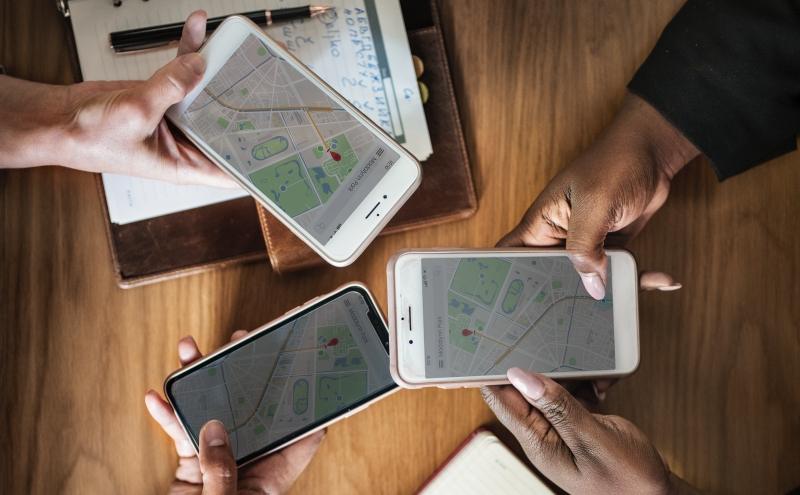Worried about your privacy? “How do I know if my phone is being tracked?” is a question more people are asking these days, and with good reason. In our connected world, phone tracking has become a real concern for many. Whether it’s an overprotective partner, a nosy employer, or someone with malicious intent, knowing if your phone is being monitored is crucial for protecting your digital privacy.
Understanding Phone Tracking Concerns
Most of us carry our phones everywhere, making these devices perfect tools for tracking someone’s movements and activities. While some tracking is legitimate – like finding a lost phone or keeping tabs on kids – unauthorized monitoring is a serious invasion of privacy.
Types of Phone Tracking
| Tracking Type | What It Monitors | Common Uses |
|---|---|---|
| GPS Tracking | Physical location | Find lost phones, family safety |
| Spyware | Messages, calls, browsing | Unauthorized surveillance |
| Legitimate Apps | Varies by permissions | Parental controls, employee monitoring |
| SIM Tracking | Call logs, approximate location | Law enforcement (with warrant) |
Common Signs Your Phone Is Being Tracked
Wondering if someone’s keeping tabs on your phone? Here are some red flags to watch for:
1. Battery Draining Too Fast
Notice your phone dying much quicker than usual? Tracking apps work continuously in the background, sending your information to whoever’s monitoring you. This constant activity can seriously drain your battery.
If you haven’t changed how you use your phone but the battery is suddenly struggling to make it through the day, something fishy might be going on.

2. Data Usage Through the Roof
Spotted unexpected spikes in your data consumption? Tracking software needs to send the collected information somewhere, and that requires data. Check your usage stats in your phone settings. If the numbers look suspiciously high without explanation, someone might be monitoring your activities.
Expert Tip: “Spyware typically sends data in bursts rather than continuously. Look for irregular data usage patterns, especially during times when you’re not actively using your phone.” — Sarah Chen, Mobile Security Analyst
3. Phone Acting Weird
Is your device suddenly slower than a turtle? Maybe it’s overheating for no reason or crashing randomly? While there could be innocent explanations, tracking software running constantly can overwork your phone’s processor. If these issues appeared out of nowhere, it’s worth investigating further.

Our smartphone performance troubleshooting guide can help determine if the problem is spyware or just regular technical issues.
4. Odd Sounds During Calls
Hearing strange background noises, echoes, or static during phone calls? Maybe some weird clicking sounds or distant voices? These could be signs that someone’s listening in on your conversations. Not every bad connection means you’re being tapped, but consistent strange sounds are definitely suspicious.
5. Screen Acting Up
Ever caught your phone lighting up when you’re not using it? Or maybe it’s restarting on its own or showing strange activity? Tracking apps sometimes trigger these behaviors when they’re running operations or receiving commands from whoever installed them.

6. Unfamiliar Apps
Take a good look through all your apps from time to time. Spotted something you don’t remember downloading? Some tracking software disguises itself as innocent-looking utilities or games. Be especially wary of apps with vague names or generic icons.
7. Settings That Changed Themselves
If important settings have been altered without your doing, someone might have been messing with your phone. On Android, check if developer options are suddenly enabled. For iPhone users, unknown profiles or certificates are big red flags.
Technical Methods to Detect Tracking
Ready to play detective? Here’s how to check if someone’s spying on your phone:
Hunt for Hidden Apps
For Android users:
- Head to Settings > Apps > See all apps
- Take your time looking through everything
- Be suspicious of unfamiliar names, especially if they have permissions to your location, microphone, or camera
iPhone users should:
- Check all home screens and folders for unknown apps
- Go to Settings > Privacy and see which apps have access to sensitive information

Review App Permissions
Many tracking methods rely on having access to your location, camera, and microphone:
On Android, go to Settings > Privacy > Permission manager to see which apps have these privileges.
For iPhone, check Settings > Privacy to review permissions.
Don’t be shy about revoking access for apps that don’t obviously need these features.
Run a Spyware Scan
Several reputable security apps can help you hunt down spyware:

These tools can spot tracking software that you might miss during a manual search.
Platform-Specific Checks
For iPhone Users:
- Check for profiles you didn’t install: Settings > General > VPN & Device Management
- Review which apps use your location: Settings > Privacy > Location Services
- Look at “significant locations” to see if your movements are being tracked
For Android Users:
- Is “Unknown sources” enabled in Settings > Security? This allows apps from outside the Play Store
- Are Developer Options turned on without your knowledge?
- Check your Google location history in Google Maps > Your profile > Your data in Maps
What To Do If You Suspect Tracking
Found evidence that someone’s monitoring your phone? Here’s what to do:
Immediate Safety Steps
- Turn on airplane mode to cut off data transmission temporarily
- Use someone else’s phone for important calls or messages
- Change your important passwords using a different device
Getting Rid of Tracking Software
- Uninstall any suspicious apps
- Run anti-malware software to catch hidden trackers
- If all else fails, back up your important stuff and reset your phone to factory settings
Case Study: Maria discovered her ex-partner had installed tracking software on her phone after noticing unusual battery drain and strange text messages. After performing a factory reset and strengthening her security measures, she regained her privacy and peace of mind.
Locking Down Your Phone
- Update your operating system right away
- Set up two-factor authentication for your accounts
- Go through all app permissions and restrict unnecessary access
- Consider using a VPN for extra privacy
Prevention Measures
To keep snoops at bay in the future:
- Use strong passcodes and fingerprint/face recognition
- Keep your phone with you or locked away
- Be picky about which apps you download
- Check your installed apps regularly
- Don’t put off security updates
- Try privacy-focused browsers and messaging apps
Legal Considerations
It’s worth knowing when phone tracking crosses legal lines. In most places, monitoring someone’s phone without their knowledge is illegal unless:
- It’s a company-owned device used by an employee (with proper notification)
- Parents monitoring their underage children
- You’ve specifically agreed to the tracking
The Electronic Frontier Foundation offers resources on digital privacy rights that can help you understand the legal implications of unauthorized tracking.
If you think you’re being illegally monitored, save any evidence and contact the police. For stalking situations, organizations like the National Center for Victims of Crime can offer support.
Introduction to Famicyber: Protecting Your Family
Among the many tracking tools available today, Famicyber stands out as a comprehensive family safety solution. Understanding this tool from a family protection perspective can help you make informed decisions about monitoring your loved ones’ digital activities.

Key Features of Famicyber
- Real-Time Location Tracking: Monitor your child’s location instantly to ensure they’re safe and where they’re supposed to be throughout the day.
- Communication Monitoring: Review calls and messages to protect your child from cyberbullying, inappropriate contacts, and potential predators.
- App Usage Insights: See which applications your child uses most frequently to understand their digital habits and identify potentially concerning patterns.
- Social Media Monitoring: Track activity across popular social platforms to detect potential cyberbullying, concerning interactions with strangers, and inappropriate content sharing.
- Activity Reports: Receive detailed daily and weekly reports summarizing your child’s digital activities, allowing you to have informed conversations about online safety.
Conclusion
Knowing the signs of phone tracking puts you back in control of your privacy. By staying alert for warning signs, regularly checking your device, and practicing good security habits, you can significantly reduce the risk of being monitored without your knowledge.
Make security checks part of your routine, like changing your smoke detector batteries or getting your car serviced. The digital landscape keeps changing, so staying informed about new tracking methods and protection measures is your best defense.
If you do find tracking software, think carefully about your next steps. Sometimes it might be a misunderstanding with concerned family members. Other times, it could be something more sinister requiring legal help. Either way, you now know how to spot the signs and take action to protect your privacy.
Hi, I’m Elaine, a psychologist specializing in digital psychology, focusing on how technology impacts teens and adults. At famicyber.com, I offer advice on managing online behavior, from guiding parents with teens’ screen time to helping partners maintain healthy digital relationships. I hold degrees in Clinical Psychology from Columbia University and have 6 years of experience as a Clinical Psychologist and 4 years as a Researcher.




